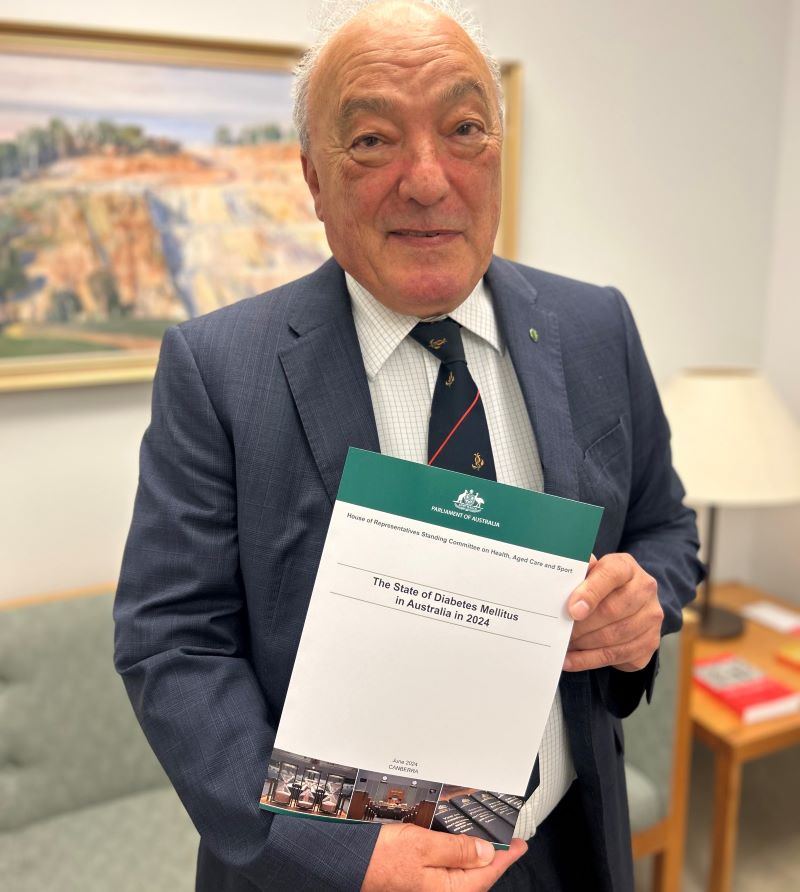Dr Mike Freelander says there were a few surprises during the inquiry into diabetes.
The Member of Macarthur chairs the Standing Committee on Health, Aged Care and Sport which conducted the 18 month inquiry into the “diabetes epidemic’’.
“There were many findings that surprised me, including data that we acquired from health stakeholders regarding the link between sugary sweetened beverages consumed by individuals and their resulting diabetes,’’ he tells the South West Voice.
“This was further evidenced by our time in Yarringbah, which is located just outside of Cairns – literally across the harbour – but which has immense social, financial and of course, health, struggles. Here, we saw children drinking nothing but soft drink and their local store had no fresh produce, apart from some old potatoes, and very limited numbers of bottled water, which were often dearer than the soft drinks.’’
Dr Freelander and members of his committee released the findings last week in Canberra, along with 23 recommendations, the most controversial being a levy on sugar-sweetened beverages.
Coalition members of the committee submitted a dissenting view on this.
Dr Freelander says diabetes and obesity is not and should not be a political issue.
“There are individuals affected by this regardless of what political party their local MP is from and they would benefit from this recommendation being implemented.
“I appreciate the support that my fellow committee members, including independent TEALS such as Dr Monique Ryan and Dr Sophie Scamps as well as the members from the Labor Party, for putting community health and well being ahead of politics and are supporting this recommendation,’’ Dr Freelander said.
“The government only received this Inquiry less than a week ago, and so they will take the time to assess and analyse these recommendations and how best to implement them.’’
Dr Freelander says one of the insights the committee picked up during the inquiry was that local health care providers such as GPs, can play a bigger role in dealing with the prevention and treatment of diabetes.
“GPs are often the first medical professionals that an individual will engage with when discussing their healthcare,’’ he says.
“Our inquiry found that an effective, well informed GP consultation can help individuals better understand their risk or diagnosis of diabetes and how to take steps in managing this.
“They can also receive referrals to engage with diabetes educators, nutritionists and other specialists.
“This of course requires greater access to GPs, particularly in rural, regional and outer metropolitan areas, and I am thankful to the RACGP for their engagement with our inquiry to address these concerns.’’
Dr Freelander says Type 2 diabetes is being increasingly recognised in individuals with genetic or family-related risk factors, and for individuals with a family history of Type 2 diabetes or obesity, and those from various ethnic groups, are at a higher risk of developing the disease.
“That is why I am so passionately advocating for greater supports for these individuals, as Macarthur is a multicultural community and for many, it is through no fault of their own that they have genetic dispositions that harm them,’’ he says.
“Diet and lifestyle, including stress and limited time for physical exercise, also contributes to the risk of Type 2 diabetes occurring and for some Macarthur households, this is a very real issue that leads to these diagnoses,’’ he said.
“Poor suburban planning, with limited green space and parks to exercise, as well as poor transport infrastructure has led to less time to work out and without proper workout space.’’

